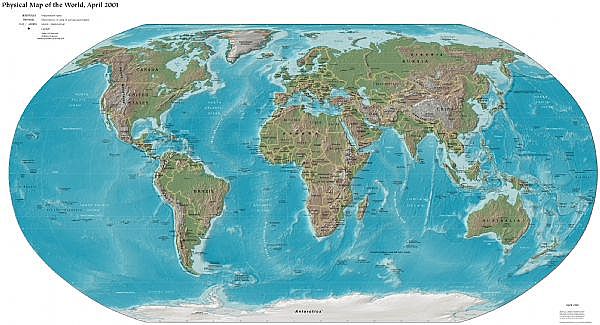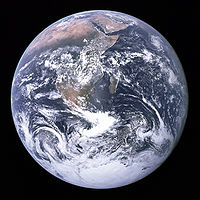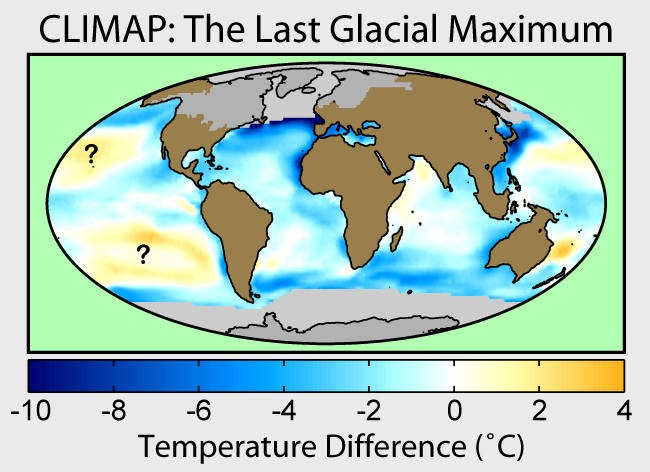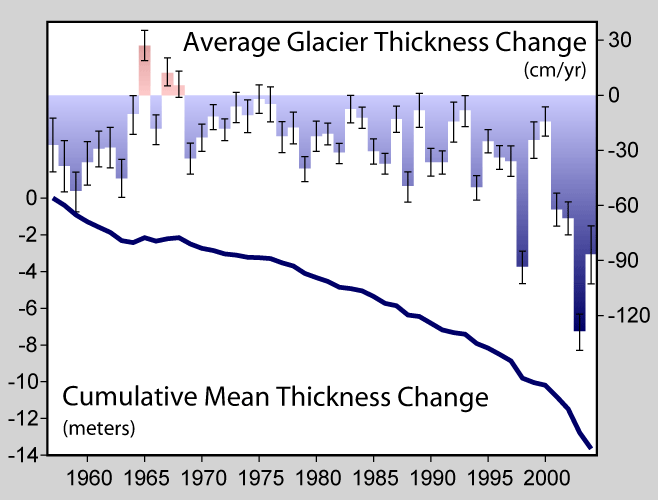It’s pretty serious - I have tachycardia mediated cardiomyopathy - also called heart failure.
A recent sonogram showed my heart to be a twitching, flaccid muscle. For now, we’ll skip the reasons why. Let’s just say that in order to live a good deal longer I need to be devoted to recovery and health. Without radical behavior change, I face an early death. So I adapt and mitigate. The same goes for global warming in our future. This is a pretty big threat. Anthropogenic Global Warming acts as a foil for my personal health problems. Not just for my lifetime (I am age 60) but much more serious for young people alive today. If humans want to host more than a few generations then we must adapt and mitigate, because fixing it is now impossible.
A few years ago, I started seriously studying global warming, all the while ignoring and denying my personal health decline. My heart failure happened slowly, imperceptibly at first. Decades of caffeine-filled hyper-vigilance combined with sleep apnea and atrial fibrillation to overstress my heart. Finally, some side effects of antibiotics caused a pounding in my chest like someone hitting me with a hammer from the inside. Panic palpitations sent me to more than one cardiologist. My coronary arteries are clear, but the volume of blood pumped by my failing heart is a fraction of optimal. I felt tired, breathless, and spent - a dangerous state where over-exertion and high blood pressure could harm me far more. I was lucky to have pain that pushed me to get help, get educated and get on track for change.
My health and how it compares to a globally destabilizing climate
So far, global warming events have been more inconvenient and local rather than widespread and catastrophic. Our passing summer heatwaves, droughts, stronger storms and other transient weather anomalies,
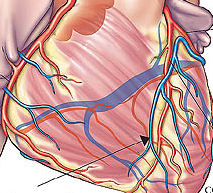
 I learned from the pain and took action. I could have learned earlier. I could have listened to childhood warnings, and the world could have protected me from my own stupidity. So just what pain level does the world need for a sufficient global warming message? The melting, the heatwaves are too subtle. Many people can see the danger, but the world is not quite ready to ask for help.
I learned from the pain and took action. I could have learned earlier. I could have listened to childhood warnings, and the world could have protected me from my own stupidity. So just what pain level does the world need for a sufficient global warming message? The melting, the heatwaves are too subtle. Many people can see the danger, but the world is not quite ready to ask for help.
Eventually a failing heart muscle fills the chest with fluid, the lungs choke on saline waters like the rising oceans lapping at civilization. Every moment will be a struggle between accepting changes and the slipping back into complacent sloth. The time scale of inevitable decline is years and decades. Am I talking about my health or the health of the earth’s atmosphere and oceans? My arrhythmic heart is a metaphor for what is happening to the earth’s ecosystem. It is weakening and will inexorably decline unless there is a dramatic intervention.
Recently, I got some good information and superb treatment from Seattle electrocardiologist - Dr. Jad Swingle and a team of nurse/PTs offering cardiac exercise rehab). He was sympathetic to comparing cardiac health to world climate health, but he declined to treat all the world. All he could do was help me. First, he added the word ‘diagnose’ to the phrase “adapt and mitigate”. I came to understand my disease much better, and encourage heart muscle healing, and learned to know what could really harm me. Couldn’t every person on earth learn how to live sustainably?
Rising tides are like a million heartbeats ebbing and flowing and begin the floods. I may live to feel my swollen ankles surrounded by sea waters where as a child I played on dry ground. I stopped eating salt. But the ice melts. And the seas rise. Every bite must be fully careful. Every action will be fully knowing. In order to secure a future, I and the 6 billion others must lead intensely purposeful lives. Every action sustainable. As we both decline further, the missteps will be more painful, the consequences harsher, the requirements more ruthless. I see the biggest challenge as mindfully knowing and reducing the anxiety that accompanies change.
So many things have hurt my health. I am justifiably angry that the world has so effectively plundered my future by marketing tobacco, over-consumption, overeating, and such heavy carbon combustion. Humans rationalize overindulgence and then add willful ignorance leading to self-destruction. I can control my own health - maybe. Global health requires action from all devotees. If I lived an unhealthy life, felt pain, sought help, adapted and now live on, then cannot the world do the same? It scares me that I am imperfect, that I must struggle, that I may decline more. Now my body cannot tolerate half or part-time abuse, as if one arm was smoking, and the other stayed pure. So too, our species survival requires full compliance. Sustainability is all-in game. In our fully enclosed spaceship Earth, a small fraction of the world can misbehave - sabotaging the whole.
 A hundred years of heavy carbon emissions from our industrial civilization have heated our slow-warming atmosphere and seas. It is as if we have been persistently adding extra insulation to our greenhouse. And just now we are discovering the extent of our global disease. And even if we quit using carbon completely, reduce consumerism and drop population - even with strict sustainable behavior - the health of our planet’s air and ocean will continue to decline for another 50 to 100 years.
A hundred years of heavy carbon emissions from our industrial civilization have heated our slow-warming atmosphere and seas. It is as if we have been persistently adding extra insulation to our greenhouse. And just now we are discovering the extent of our global disease. And even if we quit using carbon completely, reduce consumerism and drop population - even with strict sustainable behavior - the health of our planet’s air and ocean will continue to decline for another 50 to 100 years.
It is possible that a destabilized runaway climate will make catastrophe inevitable. Doing nothing assures it. We have a diagnosis without prognosis. Without a cure, we can only mitigate and adapt. We have only started discussions. There is so much to do. However, with decades of heavy industrial build up and our persistently irresponsible carbon pollution, there is so little that one person today can accomplish.
Since any decline and collapse will be amplified by increasing climate destabilization, peak oil and a poor economy, we should stop the dangerous delusion that our situation might be “greatly exagerated.” It is time for a global intervention. Had I ignored feeling uncomfortable, tired, out of breath, and weakened, I would be dead today. Global climate dis-ease will make us all feel worse: overheating, droughts, weather anomalies, sea-level rise, and all the ramifications of destabilizing climate and oceans. Of course, by then we will know precisely the problem and get serious about it. At that time, we will decide whether to change.
I can directly influence my own health with exercise, a no-salt diet, weight loss, mindful rest, lowered stress and a mindful, engaged and productive life style. I know I must secure future for myself before I can help change the world. The difficulty is that everyone else must do the same thing, do what is best for ourselves, then for our posterity. And the converse proves true - without everyone willing and eager to change, there is little chance of making future changes globally. Until the world seeks a real solution, our efforts are strained and panicked.
Same event - different interpretation
Hypervigilant anxiety lets us borrow troubles from the future. Or one can calmly respect climate models and hear the warnings of climate scientists. The facts remain the same, the approach is different. I am a man with coronary palpitations, I must maintain attitude, breathing, and a calm view of the situation. I can strive to be mindful. I ask that every person on earth strive to do the same.
No one gets off the planet alive. But this should not apply to our entire species. It is time to be mindful and commit to live on in our DNA and culture. It is a nice fantasy to think that all the people in the world can unify behind a clear survival goal - just as nice to think I can give full compliance to my personal health regimen.
Lets pretend 6 billion people can unify to act as one person
Whether the global atmosphere or my own chest, this is a science problem that follows the strict laws of cause and effect. Scientific justice cannot be politically compromised, nor can physical fate be renegotiated like a business deal. Despite an organized denial machine, the inevitable climate changes will be ruthless and un-touched by political maneuvering and human emotions. The physical world and chemical body requires concrete and direct interaction. Without real physical interaction, words and wishes are just inconsequential prologue to a tepid history.

For now, I get to learn from past mistakes, change behavior and continue living. The world’s consumption of carbon fuel is dangerously destructive, just like my consumption of salt, caffeine, carbs and alcohol. The exhilarating frenzy of industrial progress parallels my personal history of fear, aggression, anxiety, and stress that so damaged my health. If we are to survive and thrive there must be serious, fundamental change in both self and the billion selves. Further business-as-usual living hastens doom, and further active promotion of climate denial assures it.
We need to keep asking what must I do? How soon will this happen? How bad? and the all important: How do I stay committed? Health issues prompt other big questions: How can I reduce anxiety yet stay true to the reality? How can I live for the moment without devaluing the future? Now we can pose the overarching question, “What are the new civil obligations of generations to come?”. But we will eventually learn that physical sustainability is not a question - it is a demand, a requirement.
As the world must live within a carbon budget, I must live within my cardiac footprint. I take medicines, I exercise, eat and rest so to heal and halt further decline. I cannot fully recover, but I can improve. After a few months on this program, I already feel noticeably better.
But this is not an essay about hope and enthusiasm. Its about facing reality. We all use a self-chosen blindness to filter reality. Better to accept such a trait, know it and work to avoid such self-destructive coping mechanisms by calm and rational effort.
Our civilization has soared like Icarus, now our species must overcome the gravity and redefine our life-form and civilization. Humans can learn and change and continue on. Diagnose, adapt, mitigate, accept and live on.
Richard Pauli April 2010
